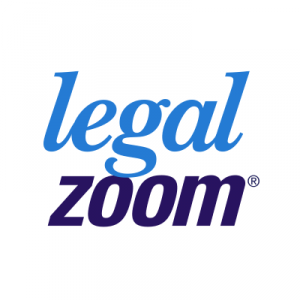Nonlawyers at LegalZoom performed legal work on trademark applications, UPL suit alleges

A complaint filed Tuesday in the Northern District of California alleges LegalZoom has engaged in the “unauthorized practice of law, false advertising, unfair competition and other claims with respect to preparation and filing of trademark applications" before the U.S. Patent and Trademark Office.
Besides LegalZoom and its co-founders, the USPTO and the state bars of Arizona, California and Texas are named defendants.
The action is brought by LegalForce RAPC, a patent and trademark filing firm, and its owner Raj Abhyanker, a patent attorney in California.
Abhyanker explains that this suit is about creating an “equal playing field” for his firm to compete with LegalZoom.
“I can’t do what they’re doing, but they can do what I’m doing,” he says. He points to malpractice insurance, CLEs and other overhead costs an attorney like himself must absorb that a company like LegalZoom does not. He says if he operated like LegalZoom, he would be disbarred.
In the complaint, the plaintiffs claim that they applied for two trademarks through LegalZoom and that the service they received constituted the practice of law. The complaint alleges that LegalZoom “trademark document specialists” who were not lawyers “provided legal advice to the plaintiffs by selecting classification and modifying the goods and services description from the template thereby applying specific law to facts.” The plaintiff recorded and transcribed those conversations with the LegalZoom employees.
Abhyanker explains that the California and Arizona state bars were named as defendants because he has offices and attorneys working and barred in both. Texas’ bar was named because LegalZoom has employees there, and the bar “isn’t doing anything to oversee them.”
Kenneth Friedman, LegalZoom’s vice president of legal and government affairs, said in a statement that LegalZoom follows all legal requirements and applicable ethics regulations. “We are seeing an aspiring competitor angrily lash out after failing to compete in the marketplace. We will not be distracted, but rather will maintain focus on our critical mission of increasing affordable access to the law.”
LegalZoom is no stranger to unauthorized practice of law complaints. In 2013, the Arkansas Supreme Court saved LegalZoom from a class action lawsuit by finding that their arbitration clause applied to claims of unauthorized practice of law. In 2010, the company was sued in Missouri on similar grounds.
In 2016, the North Carolina legislature passed a law that ended a long-running dispute between the state and LegalZoom. The legislation said that the practice of law does not include software that generates a legal document based on a user’s response to legal questions.
The ABA Journal has long reported on industry maneuvering from both LegalZoom and Abhyanker.
Updated Dec. 21 to include comment from Raj Abhyanker.
Write a letter to the editor, share a story tip or update, or report an error.


